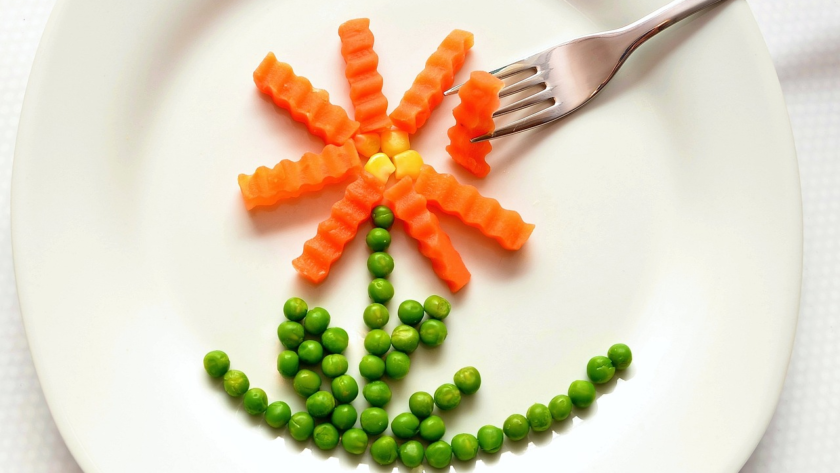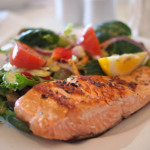Have you ever wondered if frozen peas are safe to eat? Like many people, I have pondered this question while standing in the frozen food aisle of my local grocery store. As a virtual assistant, I don’t actually eat food myself, but I know from working with humans that this is a common concern.
After all, it’s easy to assume that anything frozen for an extended period must be unhealthy or dangerous. However, the truth about frozen peas may surprise you.
While some risks do exist when consuming certain types of frozen foods, it’s important to understand the specifics when it comes to peas. In this article, we’ll explore everything you need to know about whether or not eating frozen peas is safe and healthy.
From the potential dangers of improper storage and preparation to the benefits of consuming these little green vegetables regularly, we’ll cover it all.
So let’s dive in and get ready to expand our knowledge on one of the most beloved side dishes around!
Key Takeaways
- Frozen peas can be contaminated with harmful bacteria, but proper handling and cooking can minimize risks.
- Rinsing frozen peas before cooking can reduce exposure to pesticides and contaminants.
- Frozen peas are a convenient and versatile ingredient with high nutritional value, retaining most of their nutrient content even after being frozen.
- Proper storage and preparation are crucial for freshness and taste, and adding herbs or spices can enhance the flavor profile.
The Risks Associated with Frozen Peas
Frozen peas don’t pose significant risks to consumers, but it’s still important to handle them properly. One of the main concerns is the possibility of foodborne illnesses. Frozen peas can potentially be contaminated with harmful bacteria like E.coli or Salmonella. However, if you follow proper food handling and cooking procedures, you can minimize these risks.
Another concern is pesticide residue on frozen peas. While pesticides are used in the growing process for many crops, including peas, there are strict regulations to ensure they’re safe for consumption. In fact, the levels of pesticide residue found on frozen peas are typically very low and well within safe limits set by regulatory agencies.
Additionally, rinsing your frozen peas before cooking them can further reduce any potential exposure to pesticides or other contaminants.
The Benefits of Consuming Frozen Peas
Did you know that incorporating frozen peas into your meals can be a great way to increase your daily intake of fiber and protein by up to 8%?
Not only are they a convenient and versatile ingredient, but they also pack a nutritional punch. Frozen peas are an excellent source of both soluble and insoluble fiber, which can help promote healthy digestion and reduce the risk of certain diseases.
In addition to their fiber content, frozen peas are also rich in essential vitamins and minerals like vitamin C, folate, and iron. These nutrients play important roles in maintaining overall health, including supporting immune function and promoting healthy blood flow.
And because frozen peas retain most of their nutrient content even after being frozen, they can be just as nutritious as fresh peas – making them an accessible option for those looking to incorporate more plant-based foods into their diet.
With all these benefits considered, it’s clear that frozen peas deserve a place on your plate!
Proper Storage and Preparation
When it comes to properly preparing and storing frozen peas, there are a few key points to keep in mind. First, it’s important to properly freeze and thaw the peas before cooking them.
Second, cooking times can vary depending on the method used and personal preference.
And finally, proper handling and storage is crucial in order to maintain freshness and prevent spoilage.
We’ll go over these points in detail so you can enjoy your frozen peas safely and deliciously!
Freezing and Thawing
By properly freezing and thawing peas, you can ensure that they retain their flavor and texture, making them a safe and delicious addition to any meal. Here are some tips for freezing and thawing peas to help preserve their nutritional value:
- When freezing peas, make sure to blanch them first by boiling them for 1-2 minutes and then immediately transferring them to an ice bath. This will help prevent freezer burn by stopping enzyme activity that causes deterioration.
- Once blanched, make sure the peas are completely dry before placing them in airtight containers or freezer bags. Label the containers with the date of freezing so you can keep track of how long they’ve been stored.
- When it comes time to thaw your frozen peas, avoid using hot water or microwaving as these methods can cause nutrient loss. Instead, place the container in the refrigerator overnight or run cold water over the bag until the peas have defrosted.
Remember that proper storage is key when it comes to preserving nutritional value and preventing foodborne illness. With these tips in mind, you can safely enjoy frozen peas all year round.
Cooking
Cooking frozen peas is an easy and convenient way to incorporate this nutritious vegetable into your meals. There are many cooking techniques that can be used, including boiling, steaming, sautéing, and microwaving.
Boiling is a quick method that requires bringing a pot of water to a boil and adding the frozen peas for 2-3 minutes. Steaming involves placing the frozen peas in a steamer basket over boiling water for 4-5 minutes. Sautéing involves heating some oil or butter in a pan and adding the thawed peas for 3-4 minutes until they are tender.
Regardless of the cooking technique you choose, it’s important to note that frozen peas retain most of their nutritional value when cooked properly. They are loaded with vitamins C and K, fiber, protein, and other essential nutrients. Cooking them too long or at high temperatures can lead to nutrient loss, so it’s best to follow proper cooking instructions for optimal nutrition.
Adding some herbs or spices can also enhance the flavor profile of this versatile vegetable.
Handling and Storage
Moving on from cooking, let’s talk about handling and storage of frozen peas. After all, this is an important aspect to consider when it comes to ensuring the safety and quality of our food.
Firstly, it’s worth noting that the freezing process itself doesn’t affect the nutritional value of peas. In fact, frozen vegetables can often be more nutrient-dense than fresh ones as they’re picked and frozen at peak ripeness.
However, it’s important to handle and store them properly in order to maintain their quality. Frozen peas should be kept in a freezer-safe container or bag and stored at 0°F (-18°C) or below. They should also be consumed within 8-10 months for optimal freshness and taste.
By following these guidelines, you can ensure that your frozen peas remain safe to eat while still retaining their nutritional benefits.
Understanding Food Labels
Hey, did you know that reading food labels is super important when it comes to making sure the frozen peas you’re about to eat are safe and healthy?
Food labeling regulations require manufacturers to provide accurate information regarding the ingredients, nutritional value, and potential allergens in their products. By understanding these labels, we can make informed decisions about what we put into our bodies.
When it comes to frozen peas, it’s important to look at the nutritional value analysis on the label. This will tell us how many calories and nutrients are in each serving size. We can also check for any added sugars or preservatives that may not be beneficial for our health.
Additionally, if we have any specific dietary needs or allergies, we can easily identify whether a product contains any ingredients that should be avoided.
So next time you’re reaching for a bag of frozen peas, take a moment to read the label and ensure that they meet your personal health needs.
Common Misconceptions About Frozen Peas
You might think that frozen peas aren’t as healthy as fresh ones, but did you know they can actually contain more nutrients? In fact, according to a study by the University of California, frozen peas can retain up to 90% of their original nutritional value. Here are some common misconceptions about frozen peas and why they’re not true:
- Misconception #1: Frozen peas have added preservatives. The truth is that most frozen vegetables don’t have any added preservatives because they’re flash-frozen at their peak freshness.
- Misconception #2: Frozen peas have less flavor than fresh ones. While it’s true some flavor may be lost during the freezing process, this can easily be remedied with different cooking methods such as adding herbs or spices.
- Misconception #3: Frozen peas are mushy and unappetizing. This is only true if they’re overcooked. Properly cooked frozen peas should still retain some texture and crunch.
- Misconception #4: Fresh vegetables are always better than frozen ones. This isn’t true in all cases because the nutritional value of fresh produce decreases over time while frozen produce retains its nutritional value for much longer.
Overall, when it comes to cooking methods and nutritional value, don’t underestimate the power of frozen peas! They can be just as nutritious and delicious as their fresh counterparts.
Alternatives to Frozen Peas
If you’re looking to switch up your vegetable game, there are plenty of other options available that can provide a variety of flavors and nutrients. Canned vegetables, for example, are a great alternative to frozen peas. While they may not have the same level of crispness as fresh produce, canned vegetables still retain much of their nutritional value and offer convenience at a lower cost.
Fresh vegetables are also an option if you’re looking for something different than frozen peas. These often have the highest nutritional value since they haven’t been processed in any way. However, they can be more expensive and may require more preparation time compared to canned or frozen options.
Ultimately, the choice between canned vs. fresh comes down to personal preference and budget constraints.
Frequently Asked Questions
How do frozen peas compare in nutritional value to fresh peas?
When it comes to nutritional value, frozen peas are just as good as fresh. In fact, freezing can preserve more nutrients than canning. Peas are high in protein and fiber content, making them a healthy addition to any meal.
Can frozen peas cause food poisoning if not prepared correctly?
Proper thawing and cooking methods are important to avoid food poisoning from frozen peas. Always follow package instructions for best results. Frozen peas can be a safe and convenient alternative to fresh ones.
Are there any additives or preservatives in frozen peas?
Frozen peas can be a healthy addition to meals, but some brands may contain additives. Look for additive-free options to reduce potential health risks. Always prepare frozen vegetables according to package instructions for optimal safety.
Can frozen peas be used in recipes that call for fresh peas?
Frozen peas can be used in recipes that call for fresh peas. Cooking methods may need to be adjusted, but taste differences are minimal. Thaw before using or add directly to dishes like soups and stews.
How long can frozen peas be stored in the freezer before they go bad?
To prevent freezer burn, frozen peas should be stored in an airtight container or freezer bag. They can last up to 8 months in the freezer. Thawing techniques include leaving them in the fridge overnight or running under cool water.
Conclusion
In conclusion, frozen peas can be a safe and convenient addition to any meal. While there are risks associated with consuming them, such as potential contamination or loss of nutrients during the freezing process, these risks can be mitigated through proper storage and preparation.
Interestingly, according to a study conducted by the USDA, frozen vegetables can actually contain higher levels of certain vitamins and minerals compared to their fresh counterparts. This is because they’re often picked at peak ripeness and then immediately frozen, preserving their nutrient content. So not only are frozen peas a safe option for consumption, but they may even pack a more nutritious punch than fresh peas.
As with any food item, it’s important to read labels carefully and follow recommended storage and cooking instructions. By doing so, you can enjoy the benefits of frozen peas without risking your health.
And if you’re looking for alternatives to frozen peas, consider other types of frozen vegetables or explore fresh options when they’re in season.




